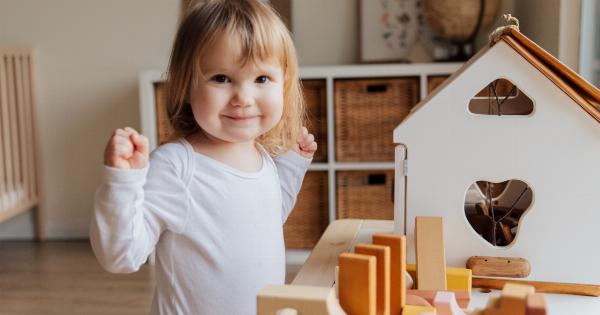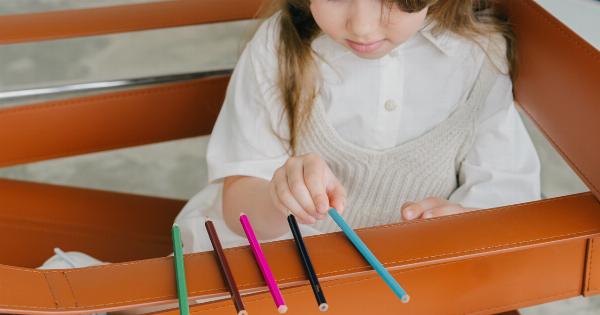Children’s personalities are shaped by a multitude of factors, including the environment in which they grow up, their interactions with others, and the objects they interact with on a daily basis.
While it might seem surprising, everyday objects can play a significant role in shaping a child’s personality. From toys and books to technology and household items, these objects offer opportunities for exploration, learning, and self-expression.
In this article, we will explore some everyday objects that can have a profound impact on a child’s personality development.
Toys
Toys are an essential part of a child’s life. They not only provide entertainment but also serve as tools for learning and imagination. The type of toys children play with can influence various aspects of their personality.
For example, playing with building blocks can foster creativity, problem-solving skills, and spatial awareness. Role-play toys, such as kitchen sets or doctor kits, can encourage empathy, cooperation, and communication skills. Outdoor toys, like bicycles or balls, promote physical activity, resilience, and teamwork.
The choice of toys can have a lasting impact on a child’s personality traits and interests.
Books
Books have the power to transport children to different worlds, expose them to new ideas, and help them develop language and reasoning skills. The types of books children read can shape their personality in several ways.
Reading fiction books can enhance empathy and emotional intelligence as children connect with the characters and their experiences. Non-fiction books can foster curiosity, critical thinking, and a love for learning. The availability of diverse books that depict characters from various backgrounds can promote tolerance, inclusivity, and cultural awareness.
Technology
Technology has become an integral part of modern life, and children are increasingly exposed to various digital devices. The use of technology can influence a child’s personality in both positive and negative ways.
Educational apps, interactive learning games, and educational videos can enhance cognitive skills, problem-solving abilities, and digital literacy. However, excessive screen time and exposure to age-inappropriate content can affect attention spans, social interaction skills, and physical activity. It is crucial to monitor and guide children’s use of technology to ensure a healthy balance.
Art Supplies
Art supplies, such as crayons, paints, and clay, provide children with a creative outlet for self-expression. Engaging in artistic activities can nurture imagination, fine motor skills, and emotional well-being.
When children use art supplies, they learn how to express their thoughts and emotions visually, building confidence and a sense of identity. Art also encourages problem-solving and experimentation, as children explore different techniques and materials. Having access to various art supplies can allow children to discover their artistic passions and develop their unique personality traits.
Musical Instruments
Playing a musical instrument at a young age has been linked to numerous cognitive, emotional, and social benefits.
Learning to play an instrument requires discipline, patience, and concentration, which can contribute to the development of a child’s personality. Playing music can boost creativity, coordination, and self-esteem. It also provides an outlet for emotional expression, as children channel their feelings through melodies and rhythms.
Whether it’s a piano, guitar, or drums, musical instruments can shape a child’s personality by fostering a love for music, discipline, and a sense of achievement.
Sports Equipment
Engaging in sports and physical activities offers numerous benefits for a child’s physical and mental well-being. Different types of sports equipment can influence a child’s personality in various ways.
Team sports, like soccer or basketball, promote teamwork, communication, and resilience. Individual sports, such as swimming or gymnastics, can enhance discipline, focus, and self-confidence. Sports also teach children important life skills like goal setting, sportsmanship, and perseverance.
Through sports, children develop a sense of identity, learn to handle success and failure, and build character.
Family Heirlooms
Family heirlooms are often cherished objects passed down through generations. These objects carry the weight of family history and traditions.
Growing up surrounded by family heirlooms can shape a child’s personality by instilling a sense of heritage, pride, and appreciation for one’s roots. They provide a connection to past generations and can foster a deeper understanding of family values, culture, and identity.
Family heirlooms often hold sentimental value and can evoke a sense of belonging and belongingness to the child, contributing to their overall sense of self.
Puzzles and Board Games
Puzzles and board games offer opportunities for cognitive development, problem-solving, and social interaction. Completing puzzles or playing board games as a child can enhance logical reasoning, memory, and strategic thinking.
These activities also encourage patience, cooperation, and sportsmanship, as children learn to take turns, follow rules, and accept defeat graciously. Puzzles and board games come in various levels of complexity, allowing children to challenge themselves and develop resilience and adaptability in the face of different gameplay scenarios.
Clothing and Dress-Up Items
Clothing and dress-up items can also play a role in shaping a child’s personality. The way children dress or the costumes they wear can reflect their interests, creativity, and self-confidence.
Dressing up as a favorite character or wearing outfits that allow freedom of movement can encourage pretend play and imaginative storytelling. Additionally, clothing that promotes comfort and self-expression can foster a positive body image and self-acceptance, contributing to a child’s overall sense of identity and well-being.
Household Chores Equipment
Involving children in age-appropriate household chores not only teaches responsibility and life skills but also contributes to the formation of their personality.
Providing children with the necessary equipment for chores, such as cleaning supplies, gardening tools, or cooking utensils, instills a sense of ownership, independence, and self-sufficiency. By engaging in household tasks, children learn to be organized, develop a strong work ethic, and understand the value of contributing to the family unit.
Such experiences help shape their personality traits, such as responsibility, empathy, and a strong sense of community.
Conclusion
Everyday objects may seem ordinary, but they can have a profound impact on shaping a child’s personality.
Toys, books, technology, art supplies, musical instruments, sports equipment, family heirlooms, puzzles, clothing, and household chores equipment all offer opportunities for learning, self-expression, and skill development. By providing children with a diverse range of objects and experiences, we can help shape their personalities in positive and enriching ways.
It is important to recognize the influence of everyday objects and create an environment that nurtures a child’s unique traits, interests, and potential.































